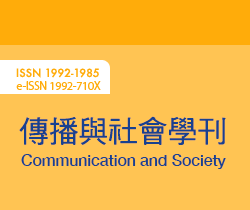 |
| October 2017 |
 |
42 |
|
| 研究論文Research Articles |
| 《紀錄片編輯室》的口述歷史生產與上海的世界主義重構 |
| The Production of Oral-History Knowledge by Shanghai TV’s Documentary Editing Room and the Reconstruction of Cosmopolitanism |
|
|
|
 |
 (5247)
(5247)
|
| 作者 |
徐亞萍 |
| Author |
Yaping XU |
| 關鍵詞 |
上海、電視紀錄片、紀錄片編輯室、世界主義、口述歷史 |
| Keywords |
Shanghai, television documentary, Documentary Editing Room, cosmopolitanism, oral history |
| 摘要 |
本文考察1990年代至2010年上海電視臺電視紀錄片欄目《紀錄片編輯室》的機構變遷與美學調整。在欄目創建初期,電視紀錄片製作者曾有意識地通過紀錄片這一形式與國際紀錄片製作者和上海本地的觀眾互動。從文化世界主義視角來看,該欄目的製作者通過紀綠片建構出上海公眾對於跨國遷移和謠遠他者的想像。本文抽取該欄目生產的四部反映二戰日軍性奴(即所謂「慰安婦」)的口述歷史紀錄片分析美學意識、機構變遷與其知識生產的關聯。研究發現,該欄目製作者將二戰歷史塑造成有關亞洲整體的創傷性歷史,將「慰安婦」倖存者塑造為歷史受害者,也強調她們流離中國的他者身份。 |
| Abstract |
This paper presents a historical study on the Documentary Editing Room of Shanghai Television Station, by focusing on its institutional changes and aesthetic adjustments; it found that during its early days, documentary was a venue where documentarians of this program consciously interacted with the local people of Shanghai. Looking through the perspective of cultural cosmopolitanism, Documentary Editing Room invited imagination on transnational mobility and remote others. To illustrate the relationship between changes of aesthetics, institutional settings and its knowledge production, the paper selected four documentary series that addressed the controversy of Japanese military sex slaves (i.e. the so-called "comfort women"). It found that through documentaries, history about the WWII were constructed into a traumatic one that involved various countries of Asia by filmmakers of Documentary Editing Room, and oral testimonies emphasized comfort women as diaspora others in China.
本文引用格式:
徐亞萍(2017)。〈《紀錄片編輯室》的口述歷史生產與上海的世界主義重構〉。《傳播與社會學刊》,第42期,頁225–254。
Citation of this article:
The production of oral-history knowledge by Shanghai TV's Documentary Editing Room and the reconstruction of cosmopolitanism. Communication & Society, 42, 225–254.
|
|
|
 |
| No.74 2025 October |
 |
| No.73 2025 July |
 |
| No.72 2025 April |
 |
| No.71 2025 January |
 |
| No.70 2024 October |
|
